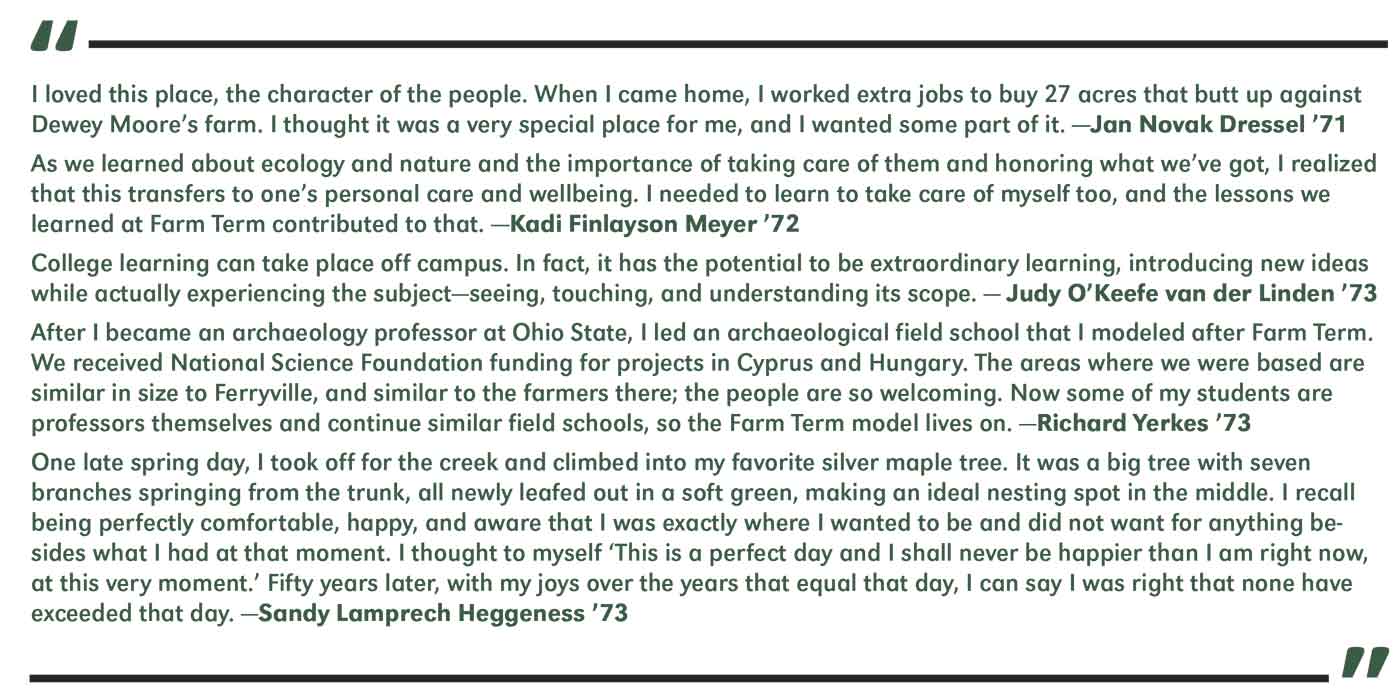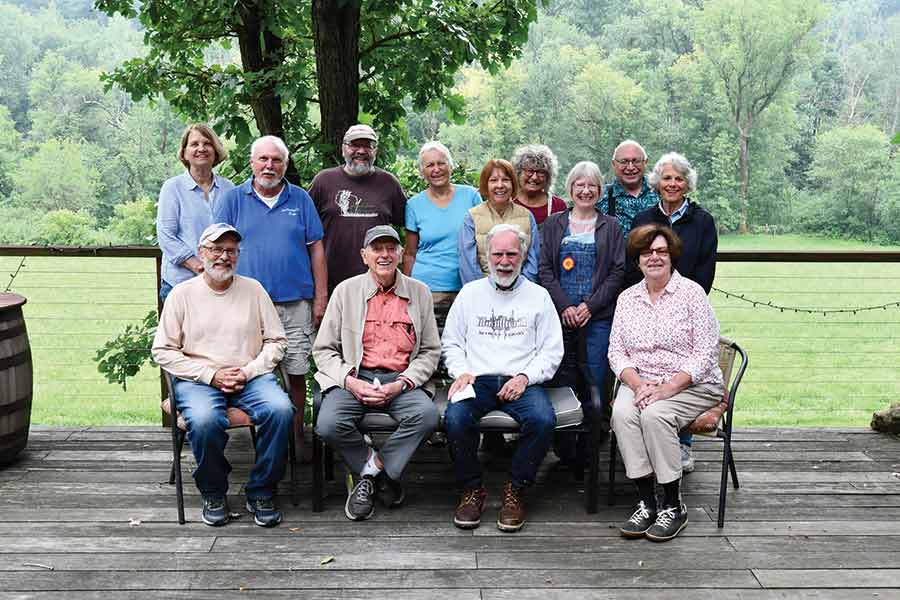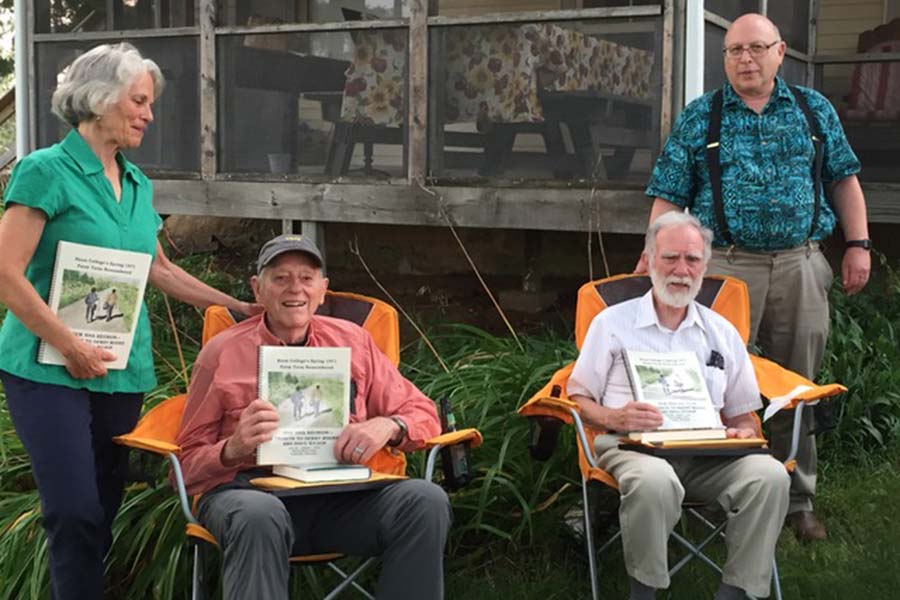In March 1971, a group of idealistic Knox College students and two hardworking professors headed to the driftless region of Wisconsin for Farm Term, one of Knox’s first immersive learning experiences—similar to the current Green Oaks Term. The Knox professors wanted the students to appreciate how farms form the backbone of the nation, and, along the way, educate them about impending ecological changes.
Farm Term was a life-changing experience for those involved. This past July, 11 of the 15 original student participants gathered for a 50th reunion of Farm Term on the Robin Metz Farm in Crawford County, Wisconsin, while two others joined virtually. They shared stories, laughs, and many warm memories. Here are some of their stories.
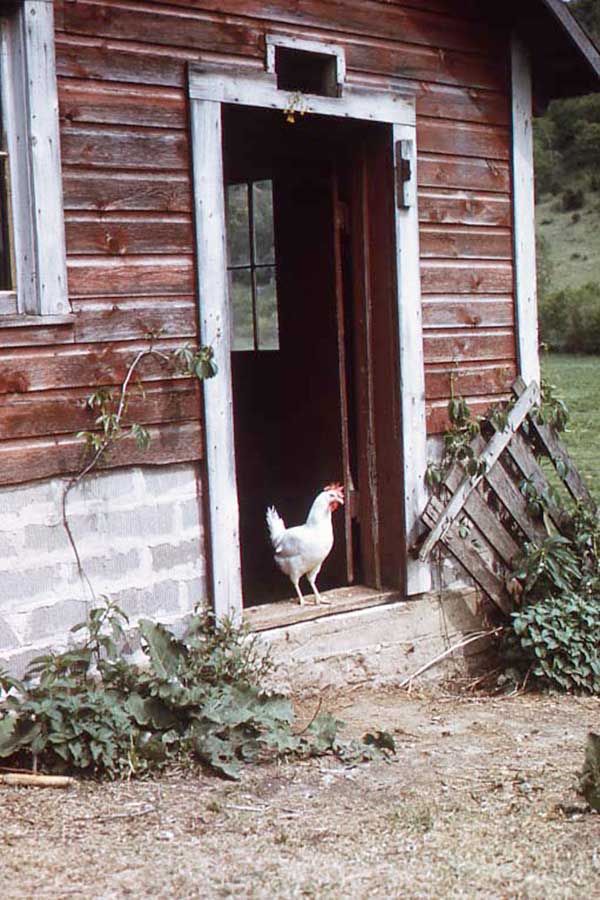
Imagining a “Satellite Curriculum”
The 1960s and early 1970s brought rapid societal changes, but, at the time, some recently hired Knox faculty members felt that the College was stuck in an earlier decade.
“Younger faculty wanted to make trouble,” recalled Doug Wilson, a recently hired English professor, and currently George A. Lawrence Distinguished Service Professor Emeritus and co-director of the Lincoln Studies Center. “There were a number of restrictive social rules we wanted to change; for example, women had to be in the dorms at eight o’clock in the evening.
“We also wanted to make the curriculum more interesting, provocative and challenging,” he said. One concept was providing a “satellite curriculum,” a precursor to the immersive experiences that Knox continues to this day.
Wilson and his wife, Sharon, enamored with the driftless region in Crawford County, Wisconsin, had purchased a farm there. Bypassed by glaciers, the area is geographically and geologically significant, with a rugged landscape bordered by the Mississippi and Wisconsin Rivers.
Knox colleagues Dewey Moore, professor of geology, and Robin Metz, Philip Sidney Post Professor of English and co-founder of Knox’s Program in Creative Writing, also relished the thought of owning land there, and both purchased property near the Wilsons’ farm. Spurred by the significance of the region, the three colleagues developed Knox’s first immersive experience, creating a satellite program called Farm Term that could educate mostly urban students about rural life through a literal on-the-ground experience.
Knox faculty loved the idea of providing such an experience for students, so Farm Term easily passed the curriculum committee. At least 30 students applied for the program and 15 students were accepted. Soon after, nine women and six men set off for the 10-week term, which ran March 21 through May 26, 1971. Only a couple of the Farm Term students had been on a farm prior to this immersive experience.
While the nine female students lived at the Metz farm, Robin Metz remained at Knox. Male students lived at the Moore farm, where the rest of the Moore family lived, including two of the Moore children, who attended local schools. Farm Term was co-taught by Doug Wilson and Dewey Moore.
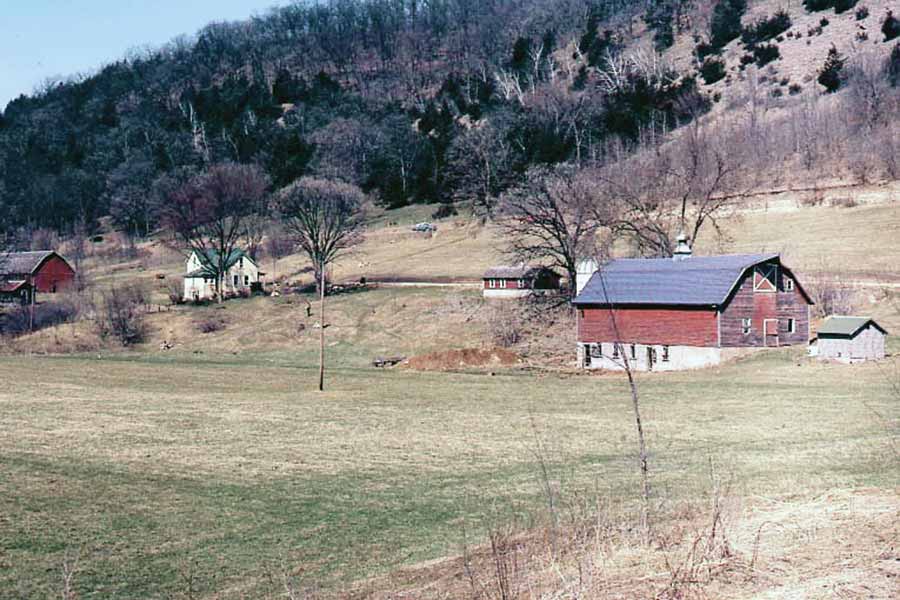
Field Trips, Food and Fiber, and a “Mangy” Goat
Every morning, the students met at the Metz Farm. Guest speakers provided their expertise on farming, local history, botany, poetry, and farm life to the students.
County Agent Virgil Buttress gave a talk on “food and fiber,” and a local writer, Pearl Swiggum, talked about the rural community. Organized activities included field trips to various locations, including conservationist Aldo Leopold’s shack near Baraboo, Wisconsin, and trips to examine geology along the Mississippi with Moore. The students worked on independent projects that focused on the domestic and the natural landscape, varying from identifying edible plants and wool spinning to working with local farmers to milk cows and grade eggs.
Students Marla Rybka Biss ’73 and Sandy Lamprech Heggeness ’73 bought a horse that they cared for and rode around the area; Judy O’Keefe Van der Linden ’73 raised chickens, and Kevin Corrado ’72 raised a “mangy” goat named Billy.
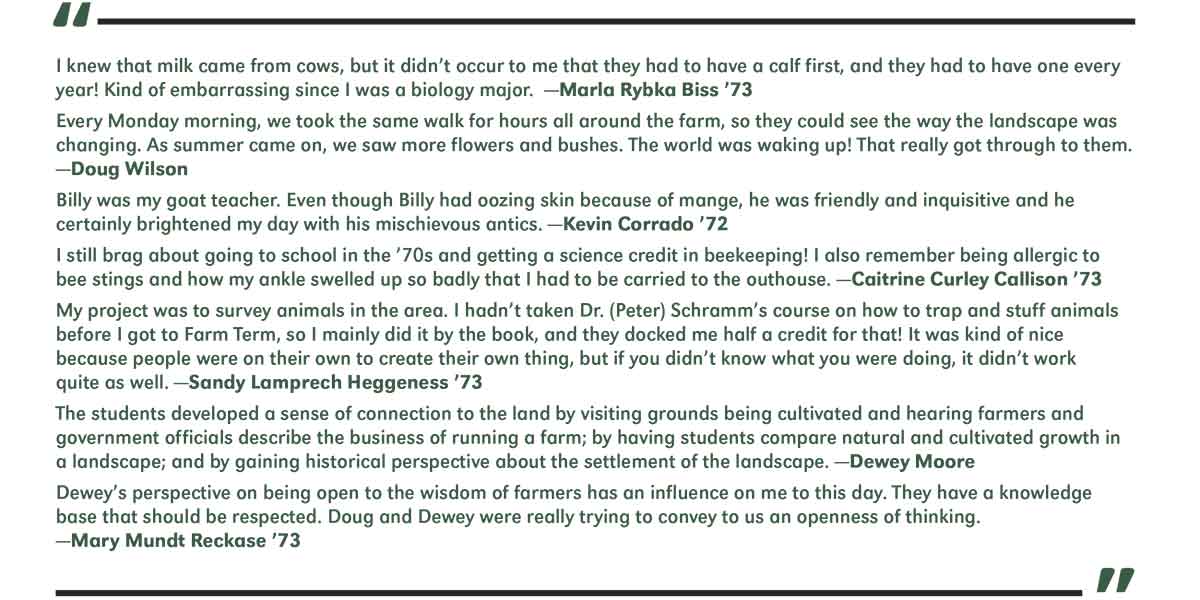
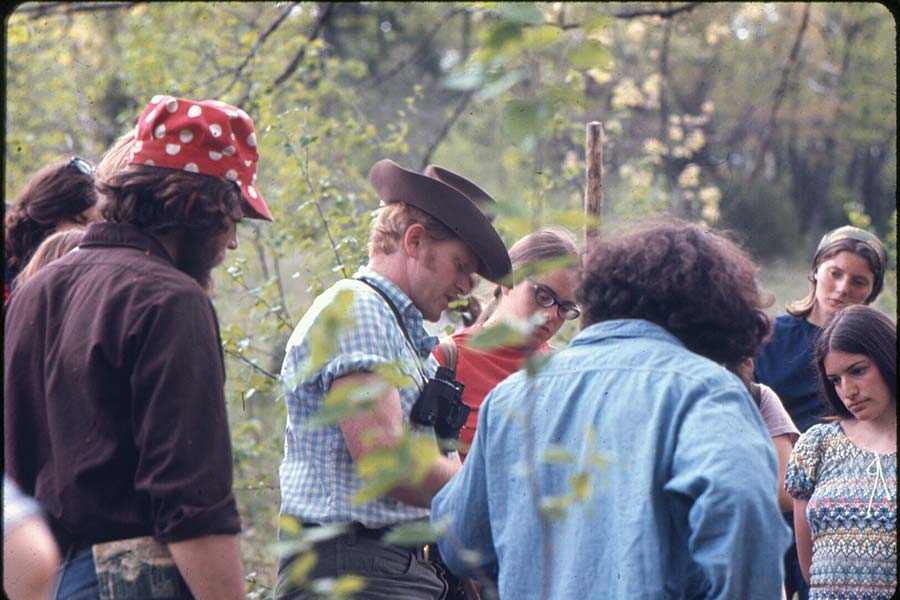
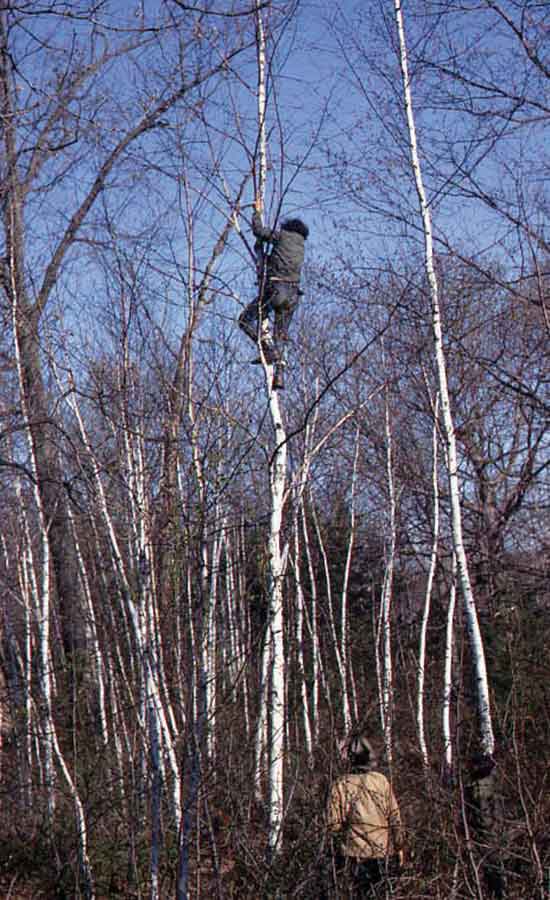
Rural Life Lessons
Living on a farm for 10 weeks had challenges. The male students, who bunked in a not-well-insulated attic room at the Moore farm, were ferried daily to the Metz farm. Because the farms used septic systems, students showered once a week, and the flush toilet was used sparingly so an outhouse was constructed. Doug’s wife, Sharon, and Dewey’s wife, Ruthie, were a big part of the experience as they did the shopping and cooked meals for the students.
Evening entertainment was strumming guitars and singing around a bonfire. Students could come and go as they pleased on the weekends by walking or hitchhiking. Kevin Corrado bought a bike to ride to the two rural schools that he was researching for his project. Students also had to find their own way to the Friday night dinners at the diner in Ferryville, a nearby town, which gave them more access to locals and also gave Sharon and Ruthie a much needed break.
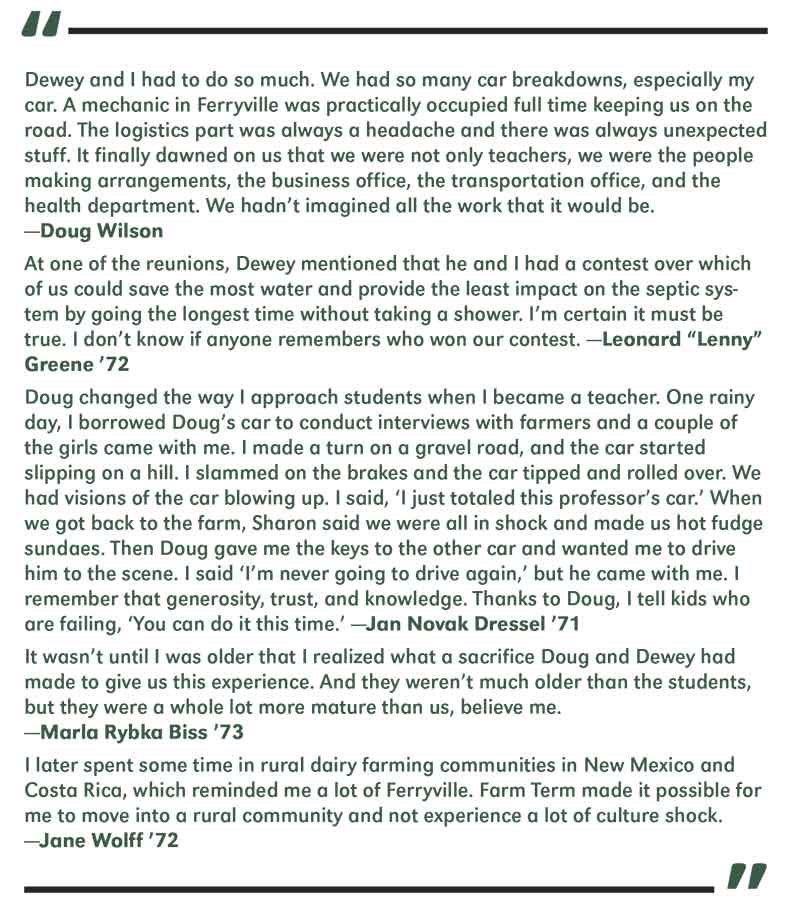
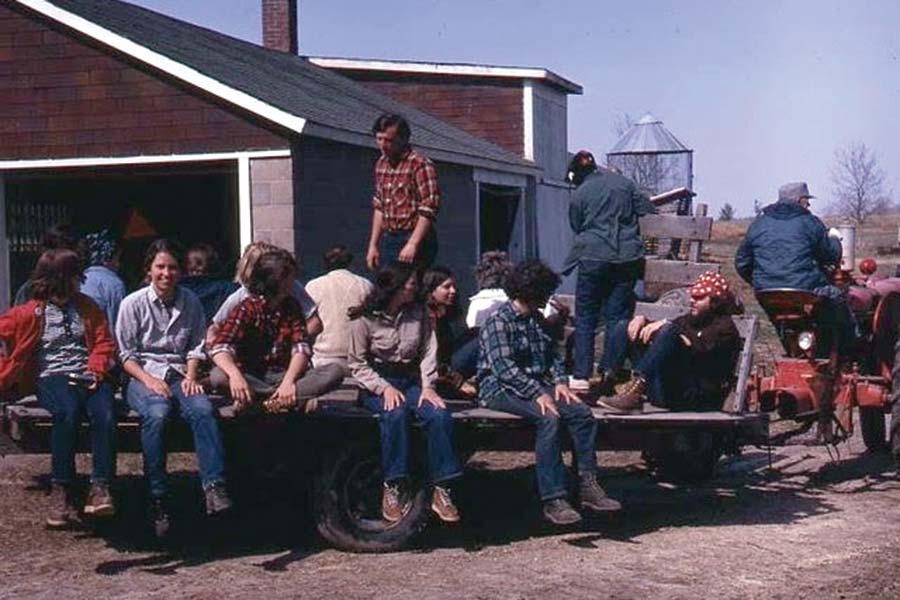
Romance on the Farm
Dan Reckase ’72 and Mary Mundt ’73 knew one another through mutual friends on campus, and Mary was interested in getting to know Dan better. At Farm Term they became a couple. They married in 1978 and settled in LaCrosse, Wisconsin, not far from Crawford County.
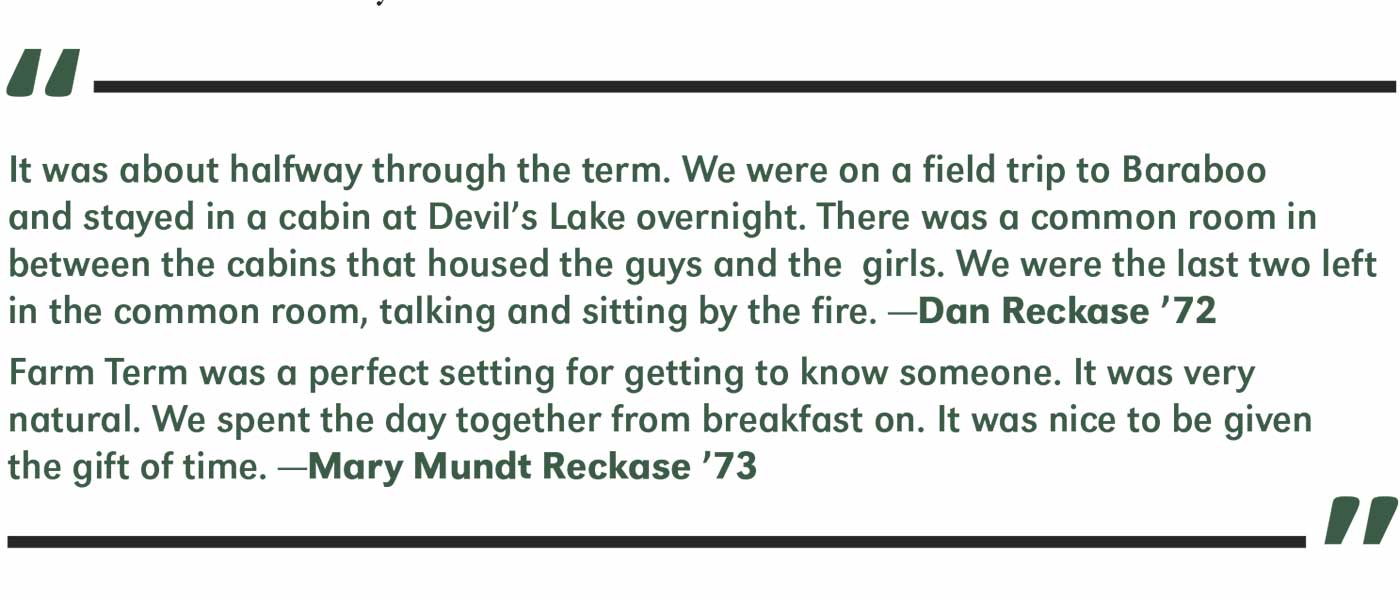
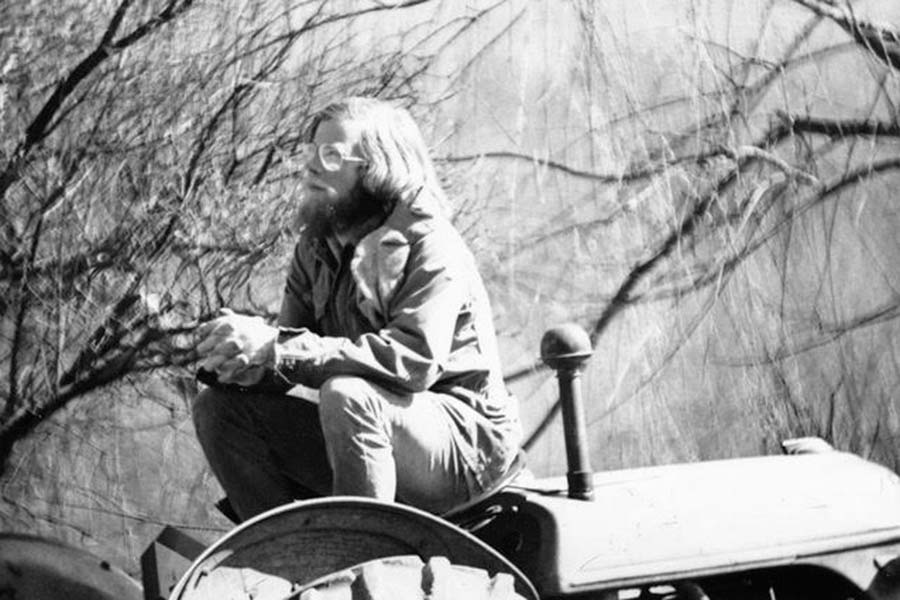
Developing a Deep Appreciation for the Land and Farmers
The Farm Termers gained a deep appreciation for the land and farmers, though with differing perspectives. Marla Rybka Biss worked in a regulatory role for a pesticide company and respects how pesticides have changed the world for the better. Karen Claus ’73 only eats free-range eggs. Some became vegetarians, others are active gardeners and hikers. A few considered becoming farmers but realized how difficult the work is. Some left Knox, taking time off and transferring to other institutions. The professors were exhausted, and Doug Wilson lost 15 pounds during Farm Term. On the whole, however, the participants agreed that they discovered a lot about the region, farming, one another, and, perhaps most importantly, themselves.
Farm Term was not repeated, though Moore continued to lead field trips in geology around the country every spring. Later, Wilson, Moore, and Rodney Davis, Szold Distinguished Service Professor Emeritus of History and co-founder of the Lincoln Studies Center, developed a Great Rivers course, which was also offered as an Elderhostel course. Eventually, Knox created the Green Oaks Term, building on experiences and suggestions for a rural immersion opportunity that is housed closer to the Knox campus.
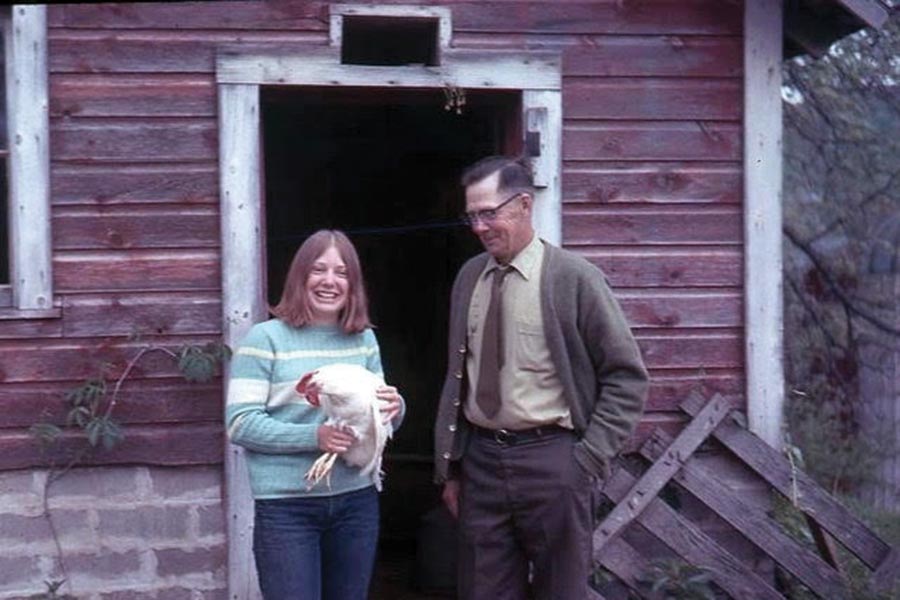
Life Unplugged
Memories have faded over the years, but the sense of connection that they have with one another has deepened. Mary Mundt Reckase attributes it to the fact that the participants were “self selected” by applying. “Maybe the people who respond to this type of immersive experience just naturally got along and easily fell into having a pleasant time together.” She also believes that the group melded together because they didn’t have distractions like cell phones. “We were each other’s focus, environment, and entertainment. We were unplugged before there was a plug.”
